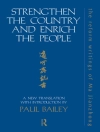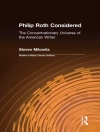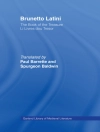New articles on topics spanning the Age of Goethe, with a special section of fresh views of Goethe’s Faust.
The
Goethe Yearbook is a publication of the Goethe Society of North America, publishing original English-language contributions to the understanding of Goethe and other authors of the
Goethezeit, while also welcomingcontributions from scholars around the world.
Goethe Yearbook 17 covers the full range of the era, from Karl Guthke’s essay on the early Lessing to Peter Höyng’s on Grillparzer. Notable is a special section, co-editedby Clark Muenzer and Karin Schutjer, that samples some of the exciting new work presented at the Goethe Society conference in November 2008: 200 years after the publication of
Faust I, eight essays offer fresh views of this epic masterpiece, often through novel and surprising connections. Authors link for example Faust’s final ascension and the circulation of weather, verse forms in the drama and the performance of national identity, the fate of Gretchen and the occult politics of Francis Bacon. Other papers explore epistemological structures and taxonomies at work in Goethe’s prose, essays, and scientific writings.
Contributors: Frederick Amrine, Johannes Anderegg, Matthew Bell, Benjamin Bennett, Gerrit Brüning, Christian Clement, Pamela Currie, Ulrich Gaier, Karl Guthke, Stefan Hajduk, Peter Höyng, Clark Muenzer, Andrew Piper, Herb Rowland, Heather Sullivan, Chad Wellmon, Ellwood Wiggins, Markus Wilczek.
Daniel Purdy is Associate Professor of German at Pennsylvania State University. Book review editor Catriona Mac Leod is Associate Professor of German at the University of Pennsylvania.
Daftar Isi
‘Offenbares Geheimnis’ oder ‘geheime Offenbarung’? Goethes
Märchen und die Apokalypse – Christian Clement
Goethe’s Green: The ‘Mixed’ Boundary Colors in
Zur Farbenlehre – Pamela Currie
For Heaven’s Sake: I Will Have You Walk Into the Dark — Grillparzer’s Containment of Beethoven and the Ambivalences of their
Melusina-Project – Peter Höyng
Imitation, Pleasure, and Aesthetic Education in the Poetics and Comedies of Johann Elias Schlegel – Herbert Rowland
Feindlich verbündet: Lessing und die
Neuen Erweiterungen der Erkenntnis und des Vergnügens – Karl S. Guthke
Juvenalian Satire in Goethe’s ‘Das Tagebuch’ – Matthew Bell
Helena, then Hell: Faust as Review and Anticipation of Modern Times – Ulrich Gaier
Histrionic Nationality: Implications of the Verse in
Faust – Benjamin K. Bennett
Die Wette in Goethes
Faust – Gerrit Bruening
Ecocriticism, the Elements, and the Ascent/Descent into Weather in Goethe’s
Faust – Heather I. Sullivan
Grablegung im Vorhof des Palasts: Groteske Anschaulichkeit in den vorletzten Szenen von
Faust II – Johannes Anderegg
Goethes Gnostiker: Fausts vergessener Nihilismus und sein Streben nach Erlösungswissen – Stefan Hajduk
The Unconscious of Nature: Analyzing Disenchantment in
Faust I – Frederick Amrine
Forms of Figuration in
Faust I – Clark Muenzer
Goethe’s Morphology of Knowledge, or the Overgrowth of Nomenclature – Chad Wellmon
Paraphrasis: Goethe, the Novella, and Forms of Transitional Knowledge – Andrew Piper
Dramas of Knowledge: The ‘Fortunate Event’ of Recognition – Ellwood Wiggins
gegen: Bewegungen durch Goethes ‘Der Mann von fünfzig Jahren’ – Marcus Wilczek
Tentang Penulis
PETER HÖYNG is Professor of German at Emory University.












